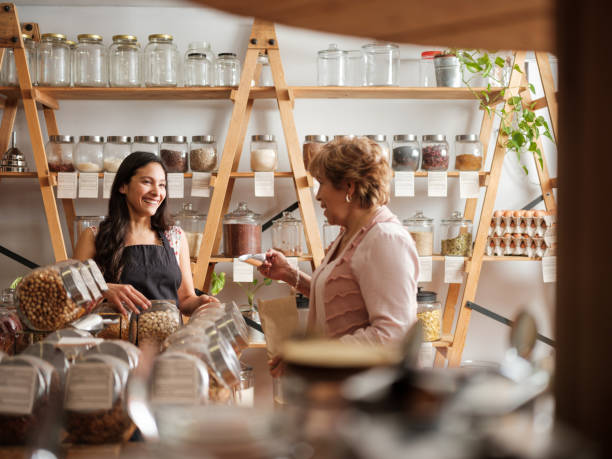Introduction to Green Living and Its Importance in Daily Health
Green living isn’t just a trendy buzzword; it’s a crucial way to boost your health while caring for the planet. At its core, green living is about making choices that reduce your environmental footprint. This means opting for practices and products that are eco-friendly and sustainable. Why does this matter for your health? Simple. A cleaner, less polluted environment means cleaner air and water. This leads to fewer health problems like asthma or waterborne diseases. Embracing green living can also encourage physical activity (think biking or walking instead of driving) and a diet rich in local, fresh produce. By integrating green habits, like recycling, conserving water, and cutting down on waste, you’re not only helping the planet but also paving the way for a healthier life. Think of it as a win-win for you and Earth.
Simple Green Living Changes You Can Make Today
To start living green doesn’t have to be hard or expensive. You can make small, simple changes today that will add up to big benefits for your health and the planet. Here’s how:
- Use reusable bags, bottles, and containers. Ditch single-use plastics whenever possible. This reduces waste and the need for plastic production.
- Eat more plants. Incorporating more vegetables and fruits into your diet is not only healthier, but it also has a smaller environmental footprint than a meat-heavy diet.
- Walk or bike for short trips. Instead of hopping in the car, consider walking or cycling. It’s better for your health and the environment.
- Switch to eco-friendly cleaning products. Harsh chemicals aren’t necessary for a clean home. Plant-based products are safer for your family and the earth.
- Cut down on water usage. Simple actions like turning off the tap while brushing your teeth or fixing leaks save gallons of water.
- Reduce, reuse, recycle. Before you throw something away, think about how you can reduce your consumption, reuse what you have, or recycle it.
By taking these steps, you not only support your health but also contribute to a healthier planet. It’s all about making better choices, one day at a time.
Green Living: Choosing Sustainable Foods for Better Health
Choosing sustainable foods means picking meals that are good for both you and the environment. It’s about embracing foods that don’t harm our planet. Let’s break it down. Local and seasonal produce tops the list. By eating what’s grown nearby, you cut down on transportation emissions – that’s a win for the environment. Plus, local fruits and veggies are fresher, taste better, and usually pack more nutrients. Organic foods are next. These come from farming practices that limit synthetic pesticides and fertilizers, reducing pollution and conserving water. Sure, they might cost a bit more, but they’re kinder to Earth and often healthier for you. Don’t forget plant-based options. Plant-based diets have a lower environmental footprint. Eating less meat and more plants can save water, reduce deforestation, and lower greenhouse gas emissions. It’s not about going vegan overnight but maybe having one or two meat-free days a week as a start. Making these choices isn’t just about personal health; it’s a step towards a healthier planet. Every sustainable food choice you make is a vote for the kind of world you want to live in.
The Role of Organic Products in a Green Lifestyle
Adopting organic products is like hitting two birds with one stone for your health and the environment. These products, free from synthetic pesticides and fertilizers, reduce your body’s chemical burden and the planet’s pollution levels. When you choose organic, you support farming practices that are kinder to wildlife and help maintain biodiversity. Essentially, organic items—from the food we eat to the clothes we wear—not only limit our exposure to harmful substances but also use less water, and energy, and produce fewer carbon emissions. Making the switch to organic means you’re stepping up for your health and taking a stand for the planet. It’s a simple yet powerful part of living green.

How Reducing Waste Contributes to Health and Wellness
Cutting down on waste does more than just help the planet – it boosts your health too. Think about it. When you focus on reducing waste, you’re likely leaning towards fresh, unpackaged foods. These are typically loaded with the nutrients your body craves, minus the unhealthy additives found in processed foods. Eating fresh means you’re fueling your body with what it needs to thrive. Beyond food, reducing waste means you’re choosing products that are less harmful. For instance, opting for items with less packaging cuts down on your exposure to potentially harmful chemicals found in plastics. It’s a win-win. You’re not just cutting back on trash; you’re choosing a cleaner lifestyle. Plus, this mindset encourages being mindful of what you’re using and throwing away, pushing you towards a more active and conscious lifestyle. This isn’t just good for your physical health but your mental well-being too. Simplifying your life by decluttering and focusing on essentials can reduce stress and increase your happiness. So, chopping down waste isn’t just about saving the Earth. It’s a direct line to boosting your health and feeling better in your day-to-day life.
Eco-Friendly Exercise Options for a Greener Routine
Switching to eco-friendly exercise options not only boosts your health but also minimizes your carbon footprint. First off, ditch the car or public transport once in a while and consider biking or walking to work. Not only do you get your daily dose of exercise, but you also save on fuel and reduce emissions. Another great option is outdoor workouts. Parks and outdoor spaces offer a fantastic backdrop for yoga, running, or any bodyweight exercises, reducing the need for energy-consuming gym equipment. For those who love the gym experience, seek out eco-conscious gyms that use energy-efficient equipment or even harness human energy from workouts. Lastly, gear matters too. Opt for exercise equipment and attire made from sustainable materials. By making these shifts, you’re not just working out your body, but you’re also doing your bit for the planet.
Green Beauty: Switching to Natural Personal Care Products
Switching to natural personal care products is a crucial step in green living. Why? Because most of the beauty products on the shelves are packed with chemicals that can harm your health and the environment. Think about it, everything you put on your skin eventually makes its way into your body and into our water systems. So, by choosing natural products, you’re not only protecting yourself but also the planet.
Natural personal care products use ingredients sourced from nature, like plants, minerals, and essential oils. These ingredients are often more gentle on your skin and less likely to cause irritation or allergic reactions compared to synthetic chemicals. Plus, they come with the added bonus of being eco-friendly.
When you start shopping for these green beauty items, look for products with clear labels that list all their natural ingredients. Avoid products with long, unpronounceable chemical names. Remember, just because a product is labeled “natural” or “organic” doesn’t mean it’s 100% free of synthetic substances. Do your homework, read up on brands committed to sustainability and green practices.
Making the switch might seem daunting at first, with the plethora of options and claims out there. But, take it slow. Start with one product, like switching to a natural shampoo or deodorant. Give your body time to adjust. You might notice a difference in how your skin and hair feel. Over time, you’ll not only see the benefits in your health and appearance but you’ll also be making a positive impact on the environment. Choosing green beauty is a win-win.
The Benefits of Minimalism and Decluttering for Green Living
Adopting minimalism and decluttering isn’t just about having a cleaner space; it’s a direct path to green living. By cutting down on what you own and only keeping what truly matters, you reduce waste significantly. Here’s the thing: every item you decide not to buy is one less item that needs to be produced, shipped, and possibly, down the line, thrown away. This simple choice cuts down on your personal carbon footprint. Plus, minimalism encourages you to invest in quality over quantity. This means purchasing items that last longer and, in the long run, generate less waste. When you declutter, chances are you’ll donate items, giving them a second life with someone else, which is far better than ending up in a landfill. So, embracing minimalism isn’t just good for your mind and living space; it’s a solid step towards living a greener, more sustainable life.

Incorporating Plant-Based Remedies into Your Health Regimen
Switching to plant-based remedies can be a simple yet impactful step towards a healthier you and a greener planet. Think nature’s bounty—herbs, spices, and plants packed with healing powers. Starting is easy. Ginger for nausea, turmeric for inflammation, and lavender for stress relief are just the beginning. Dive into herbal teas for detox or soothing effects. Remember, it’s not about ditching the medicine cabinet on day one. It’s about integrating, experimenting, and feeling the difference over time. Always check with a health professional before making significant changes, especially if you’re on medication. Embrace the power of plants and watch your health transform in harmony with nature.
Green living isn’t just a trend; it’s a commitment to a healthier lifestyle and a healthier planet. When you bring green living into your daily health routine, you’re doing more than just eating veggies or cutting down on plastic. You’re making a statement that your health and the health of the planet are intertwined. Think about it. Choosing organic foods reduces the toxins in your body and the environment. Opting for a bike ride or a walk instead of driving cuts down on pollution and boosts your physical fitness. Even small changes, like using a reusable water bottle or shopping bag, make a big impact over time. It’s all about making conscious decisions that benefit both you and the earth. So, start small. Swap out one thing at a time. Before you know it, these green habits will be part of your daily routine, leading to a healthier you and a healthier tomorrow.